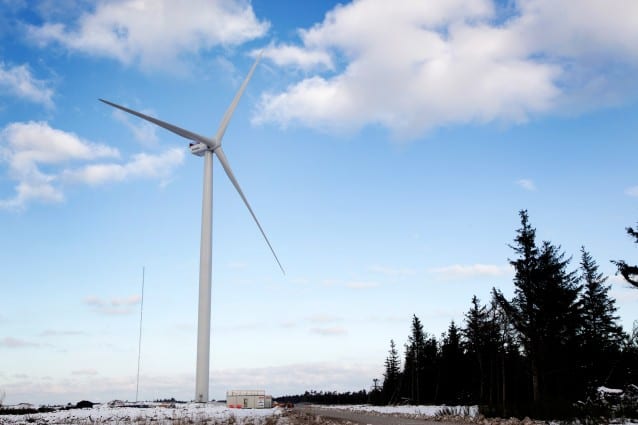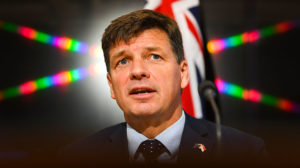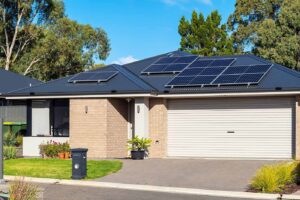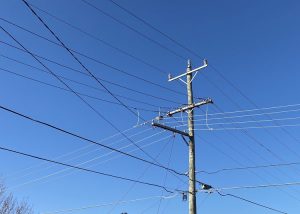The European Commission has announced plans to cap the price at which non-gas generators – including solar and wind farms – can sell their power, in the latest set of measures proposed to mitigate the impact of the ongoing energy crisis.
The measure, announced as part of a new emergency intervention package on Wednesday, calls for a cap on the revenues of so-called “infra-marginal producers” – which takes in wind, solar, biomass, nuclear, lignite and some hydropower plants – at €180/MWh.
According to the Commission, this still allows for a profit margin and preserves the incentive to invest in renewables, while generating up to €117 billion for EU member states to funnel back to households and businesses facing “unsurmountable energy bills.”
The measures also call for significant reductions in electricity consumption, while also addressing the super profits earned during the crisis by fossil fuel companies outside the power sector, but in this case with a proposal for a “solidarity contribution.”
“Today, gas-fired power plants have extremely high operating costs. And these plants set the market price,” said European Commission executive vice president, Frans Timmermans at a press conference in Brussels.
“This means that power generators with lower operating costs have been able to reap extraordinary profits, way beyond what may have been reasonably expected based on investment decisions.”
But justifications for capping wind and solar revenue were closely followed by strong declarations confirming the death of cheap fossil fuels and championing renewables as the only way out of the crisis.
“In the end, our green energy transition is the only way to rid ourselves of Putin’s energy yoke and it will create energy sovereignty in Europe,” Timmermans said.
“The era of cheap fossil fuels is over and the faster we move to cheap, clean, and home-grown renewables, the sooner we will be immune to Russia’s energy blackmail and anybody else who may think they can blackmail us with energy.
“We need to understand that the pre-war situation with abundant, cheap fossil fuels is not coming back.”
The apparent mixed message was not lost on Europe’s wind and solar industry, which was swift to point out that measures such as these not only fail to address the root of the problem – an overreliance on fossil fuels – but threaten to dampen investment in the cure.
“Consumer energy bills are skyrocketing because of our over-dependence on fossil fuels, and our vulnerability to the volatility that comes with them,” said Vestas CEO Henrik Andersen in an op-ed published here.
“A truly resilient energy system requires long-term interventions that accelerate the build-out of renewables. And if we don’t sow the seeds now, we risk being back here next year.”
Andersen argues that changes to electricity market design or profit caps should be “approached with caution,” to avoid distorting the market in a way that winds up dampening investor appetite for renewable energy.
“Slow progress on the renewables front is a self-fulfilling prophecy,” he writes. “The longer we allow ourselves to remain in the cycle of fossil-fuel volatility and growing economic disaster, the less attractive we make energy as a prospect for investors.
“Inviting in renewables, and allowing them to smooth out the peaks and troughs of the current crisis is the only way to build a more stable and predictable energy industry that would warrant further investment.
“Unlocking the tens of gigawatts of wind capacity that is currently waiting in the wings across Europe is the first step. Strengthening our energy infrastructure to ensure we can add more is the next.”
European energy giant Vattenfall, whose generating assets span across coal, gas and nuclear to include increasing amounts of hydro, wind and solar power, was also quick to question the Commission’s latest measures.
In a short statement rushed out on Wednesday ahead of “further analysis,” the company said that while it agreed on the importance of measures to reduce energy demand across Europe, and on the need for “short-term compensatory measures” for consumers, a price cap was not the best approach.
“The proposed revenue cap … risks hindering investments into new fossil free electricity production, which is what the European energy market now needs more than ever,” the Vattenfall statement says.
“It is therefore important that the proposal is temporary. It is also important to take into account that many electricity producers hedge their production and thereby are not benefiting from high electricity prices to the same extent.”
SolarPower Europe has also gone on the record with its own objections to the suggestion that renewable energy generators are enjoying the same sort of windfall profits as fossil fuel companies.
“Most solar farms are not earning the wholesale electricity price,” the trade body said in a statement published last week on its website, in response to the heads up that a profit cap was coming.
“They get a fixed price for the electricity they produce, either from a government-backed support scheme or a power purchase agreement (PPA) with an industrial consumer and should, therefore, not be subject to windfall measures.”
SolarPower Europe also warns that the design of the wholesale electricity cap will be critical, and its application should be short-term, only, while further measures to release Europe’s grip from gas are fast-tracked.
“Governments should … take measures to unlock demand response and combined solar and storage, as this will reduce the times gas power plants set the price. This requires governments to accelerate full implementation of the agreed Market Design legislation,” a statement says.







